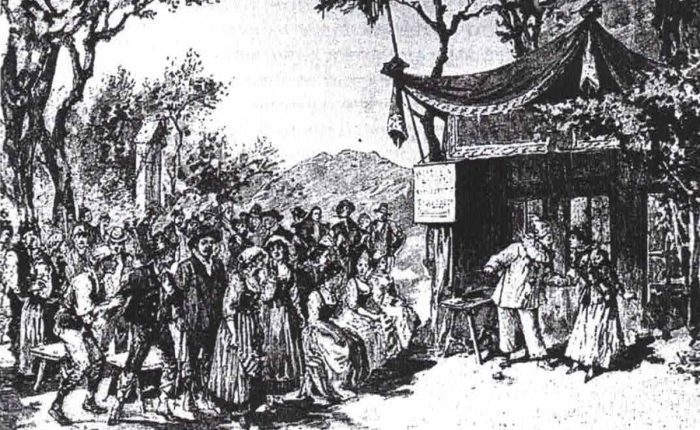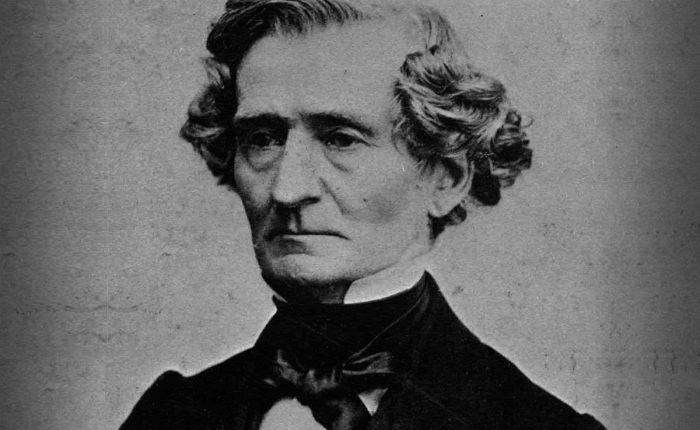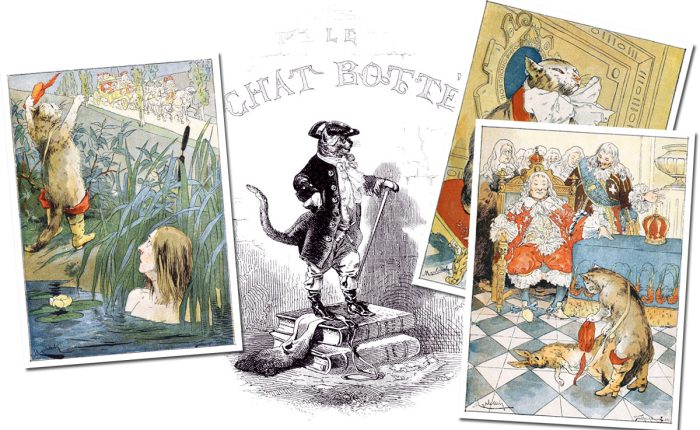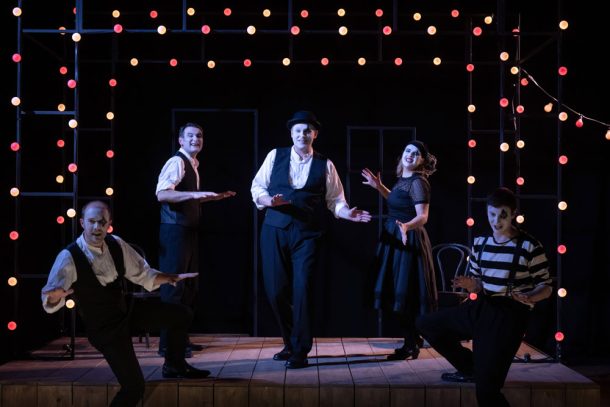With less than a month to go until the world premiere of our new SmallStages tour, Mrs Peachum’s Guide to Love and Marriage, we caught up with Artistic Director Richard Studer, who created the production and shared his thoughts about the inspiration for this radical reworking of John Gay’s 1728 original.
“Our Polly is a sad slut”
mother’s horror at daughter’s highwayman husband revealed
“If Poverty be a Title to Poetry, I am sure nobody can dispute mine. I own myself of the Company of Beggars; and I make one at their Weekly Festivals at St. Giles’s.
“I hope I may be forgiven, that I have not made my Opera throughout unnatural, like those in vogue; for I have no Recitative; excepting this, as I have consented to have neither Prologue nor Epilogue, it must be allowed an Opera in all its Forms.”
John Gay’s speech for ‘the beggar’ at the start of The Beggars Opera is a perfect summary of the librettist’s intent and philosophy for the ensuing work and one that I have strived to maintain in this reworking of the original text.
Written in 1728 Gay’s restoration ballad opera is a masterpiece of satire, and in a bizarre twist this piece that lampooned both society and opera itself went on to create such wealth that the profits were used to build the first opera house at Covent Garden – an irony undoubtedly not lost on its author.
The Beggars Opera has survived many reincarnations by the wit and dexterity of Gay’s plot and language. My own journey with the piece began at college when in a rare outing as an actor/singer I was cast as the ballad player in Kurt Weill’s version. Other productions followed and the piece was one of my first professional engagements as a director. Later in my career I have had the privilege to direct the Britten version.
Each encounter with Gay’s work has been a deeply satisfying experience and each time I have been fascinated by the character of Mrs Peachum, a monstrous woman who inexplicably disappears from the show quite early in the piece to be replaced by a succession of other formidable mistresses of their craft, from the whore, Jenny Diver, to the madam of the brothel ‘Di Trapes’ as well as Mrs P’s daughter Polly’s love rival the duplicitous Lucy.
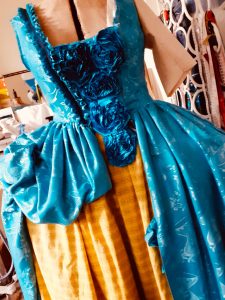 Many years ago, while working on the Britten Version it struck me that there may be the potential to consolidate these women. As each of these characters seem to continue to endorse and extemporize on the matrimonial musings of Mrs Peachum in the opening scenes. It seemed obvious that Mrs P could become the mouthpiece for Gay’s deeply cynical (yet hilariously contemporary) musings on marriage, sex and relationships in a new piece.
Many years ago, while working on the Britten Version it struck me that there may be the potential to consolidate these women. As each of these characters seem to continue to endorse and extemporize on the matrimonial musings of Mrs Peachum in the opening scenes. It seemed obvious that Mrs P could become the mouthpiece for Gay’s deeply cynical (yet hilariously contemporary) musings on marriage, sex and relationships in a new piece.
Originally conceived as a one woman show, my own version has expanded in breadth for the MWO Small Stages tour and reintroduced both the Beggar and Polly Peachum, whose rampant romanticism and indignation act as the foil to our antiheroine. Using only Gay’s original text, the new piece refocuses the work on the mother/daughter relationship and its ultimate breakdown, and adds an element of pathos to the central character that is missing from her all too fleeting portrayal in the original. Mrs P sees her daughter and her gang of thieves and professional beggars only as a commodity to be used for her own advantage – her horror at the discovery that Polly has married (and to a highwayman no less) drives the plot. Polly’s refusal to follow her mothers wishes to have her hero hanged ultimately and justly leads to a breakdown in their already dysfunctional relationship.
Like all the best social comedies Gay’s writing survives the test of time but unlike the comedies of Mozart and Da Ponte, Gay discards the elite classes and uses the characters of the gutter to lampoon society, its mores and fashions. Mrs P’s musings at times could be straight from the opinion pieces of the ‘red tops’ tabloids or talk radio. Her ‘no holds’ barred approach to ‘anti-diplomacy’ has echoes of Katie Hopkins and her ilk – a perverted idealism where the more outrageous the sentiment the more she believes in her own moral construct however abominable her utterings.
In Mrs P’s self-serving, ego-centric world any belief is appropriate providing it serves the few not the many. At the climax of this piece, at the moment when Mrs P has lost everything, the moment when you cry out for her to make a connection to her daughter, we see a character so emotionally dead that her reaction is to wallow in self pity awaiting only the recourse of operatic convention to save her from her tragedy…
However, make no mistake – this is not a dark retelling of the original, it remains a comedy and Gays brilliantly observed one liners shimmer across the text with biting satire demolishing the accepted structure of love, marriage and filial duty brick by brick until you are left wondering whether there is not at least a morsel of truth in this ghastly woman’s twisted philosophy. As with the best comic writing, Gay pulls you kicking and screaming into a hall of circus mirrors twisting and distorting both blemish and beauty, truth and lies to reflect with exaggerated comedic brilliance the society in which we stumble through our lives.

